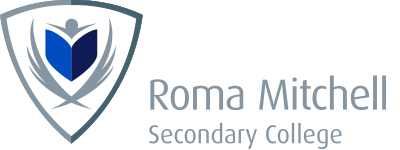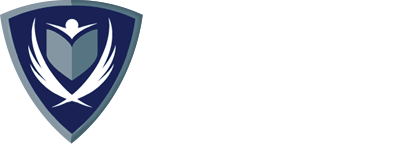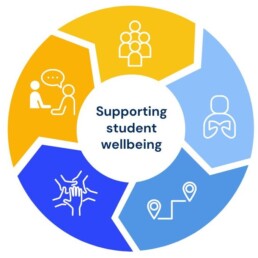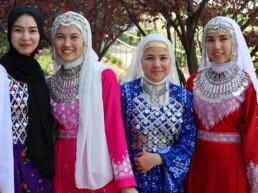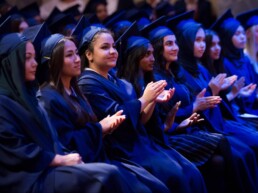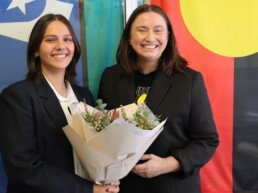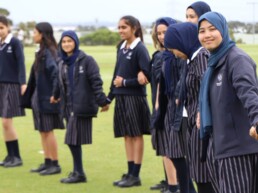Finding wellbeing and joy through education
We believe that student wellbeing is the foundation of a fulfilling education. When students are happy and healthy, they can truly thrive, leading to academic success and personal growth. Students are supported to develop our five positive behaviours: resilience, responsibility, courage, curiosity & kindness through our wellbeing curriculum and our daily teaching practices which are grounded in the Berry Street Education Model and the principles of Positive Behaviour for Learning.
The Wellbeing Leaders Team
The Wellbeing Leaders directly work with students and their families to improve the mental health and wellbeing of our students across the four campuses. They meet regularly to plan for proactive wellbeing programs and case management.
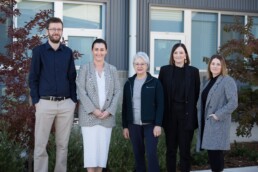
Learning Community Leaders
The Learning Community Leaders work with teachers, students and families, to monitor the wellbeing of students within their Learning Community.

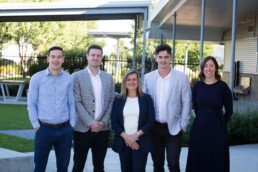
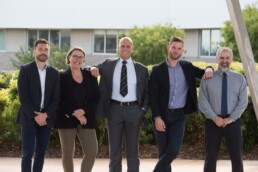
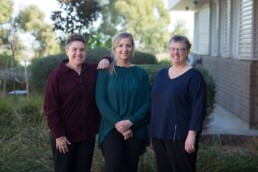
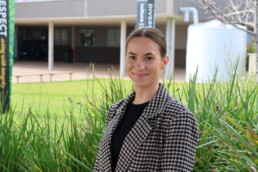
The School Mental Health Service (SMHS)
The School Mental Health Service (SMHS) operates under Student Support Services within the Department for Education. Mental Health Practitioners are based at selected schools to support young people with mild to moderate and emerging mental health concerns. The SMHS is a voluntary service and provides brief and targeted intervention.
The School Mental Health Service operates on a referral basis, requiring parental/caregiver consent prior to students accessing the service. Referrals can be initiated by students, parents, or teaching staff and are coordinated by Practitioners and Student Wellbeing Leaders.
In School Psychology
The Psychologist is a private provider who consults once every 2 weeks on the Girls’ Campus.
In-School Psychology – Child and Adolescent Psychology Services (inschoolpsychology.com)
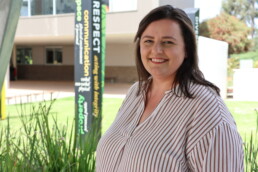
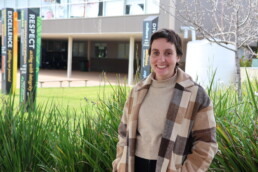
Attendance and Engagement Manager
Our dedicated Attendance and Wellbeing Manager focuses on monitoring and improving student attendance. They work closely with students to identify barriers to regular school attendance and implement strategies to overcome them. By collaborating with teachers, parents, and caregivers, they ensure a supportive and consistent approach to help students maintain regular attendance. Through their efforts, our Attendance and Wellbeing Manager aims to create a positive and supportive school environment, helping students to thrive both academically and personally.
Aboriginal Education Team
The Aboriginal Education Team is an integral part of the Wellbeing Team. Our ASETOs provide a cultural connection for students and families at school, and they work to support the wellbeing and engagement of our Aboriginal and Torres Strait Islander students.
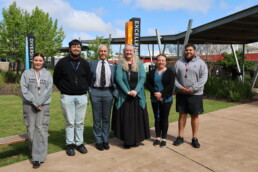
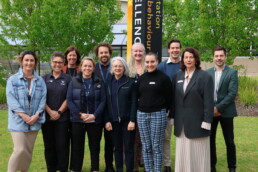
The Wellbeing and Engagement Team
The Wellbeing and Engagement Team is made up of staff representatives from across the school who have wellbeing responsibilities. They meet regularly to review wellbeing data, initiate and monitor whole school wellbeing programs and develop and monitor policies.
Wellbeing and Engagement Team
Stamatia Overell – Convener
Scott Nagel – Middle Campus Learning Community Leader
Russell McLean – Senior Campus Learning Community Leader
Lauren Saunders – Girls’ Campus Learning Community Leader
Aladdin Watson – Wellbeing Leader
Adam Downey – Wellbeing Leader
Dayna Wilkinson – Wellbeing Leader
Cathryn Pearce – Wellbeing Leader
Rachael Djoram – School Mental Health Practitioner
Laura Duff – Youth Worker
Colette Bos – Assistant Principal Learner Support and Flexible Learning
Melanie Chatfield – Coordinator Special Education Campus Wellbeing and Transition
Melanie Hawksley – Culture and Engagement Manager

Yungkurrinthi Marni
Yungkurrinthi Marni is a Kaurna term that has an overarching meaning of sharing well-being.
The Yungkurrinthi Marni program runs every morning during home group time from 8.45 until 9.00 and Mondays lesson 4. The curriculum focuses on the explicit teaching and celebration of our 5 positive behaviours of resilience, responsibility, courage, curiosity, and kindness through age-appropriate activities. Positive, practical support about mental health is also explicitly taught.
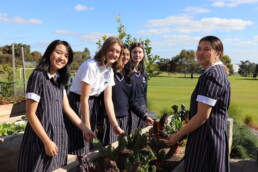
Wellbeing in our Classroom
Consistent Predictable Routines (CPR)
Click on the image for CPR
Based on Trauma Informed Practice, Consistent Predictable Routines provide a stable structure that can significantly ease the anxiety and stress our students may experience.
This predictability is crucial for fostering an atmosphere where students can engage with their education, form positive relationships, and develop strategies that support their overall wellbeing and academic success.
Our Wellbeing Programs
Roma Mitchell Secondary College offers a range of early intervention wellbeing programs that foster a supportive and resilient school community, equipping our learners with the tools & confidence needed to navigate life’s challenges.
In 2024, we have partnered with:
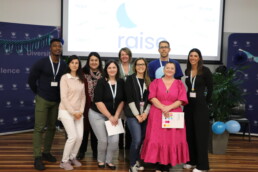
Wellbeing Outside the Classroom
Lunchtime Activities
Lunchtime activities provide students with a much-needed break from the academic rigors of the day. They help students to pursue their interests, grow their self-confidence and connect with peers who share similar passions. By engaging in these activities, students can find a healthy balance between work and play, which is essential for their overall happiness and engagement with school life.
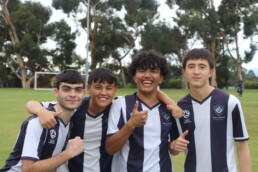
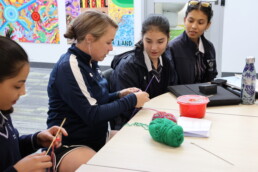
Lunchtime Activities in 2024:
Girls’ Campus:
Middle Campus:
Senior Campus:
Special Campus:
Wellbeing News and Activities
Commemorating and celebrating days of significance throughout the year plays a vital role in the cultural and emotional wellbeing of our students. These observances provide opportunities to honour diverse histories, cultures, and achievements. They foster a sense of inclusion and belonging, as students see their identities and those of their peers recognised and celebrated.
The Berry Street Education Model is an innovative approach to learning that helps students thrive both in and out of the classroom. It's designed to support children who may have faced challenges or tough times in their lives, giving them the tools, they need to focus, manage their emotions, and get along with others. This model combines the latest research in education and psychology to create a supportive school environment where all students feel safe, respected, and ready to learn. Teachers using this model are like guides, helping students build their strengths, believe in themselves, and achieve their goals. It's all about giving every student the best chance to succeed, no matter their background or experiences.
Positive Education is an approach that blends academic learning with lessons on happiness and wellbeing. It's based on the idea that educating the mind without nurturing the heart is not education at all. Positive Education teaches students important life skills such as resilience, gratitude, and kindness, alongside traditional subjects like math and science. The goal is to help students not only excel in their studies but also to develop the confidence and tools they need to lead fulfilling lives. This approach creates a positive school atmosphere where students are encouraged to be their best selves, support each other, and enjoy their educational journey. It's about preparing young people for a successful future, both in their careers and personal lives.
At Roma Mitchell Secondary College there are many opportunities to get involved in Student Leadership.
